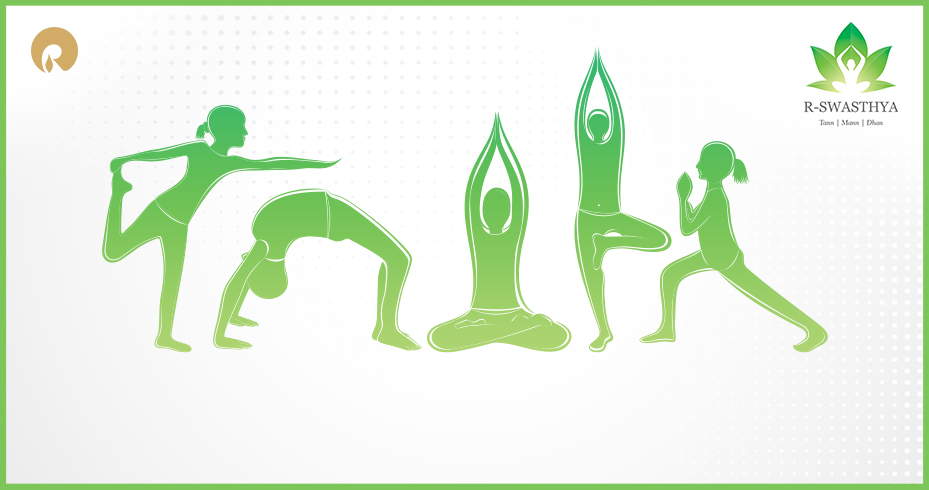Therapeutic yoga is the application of yogic science to the treatment of health conditions. It involves practice of yoga, yoga psychology and philosophy to prevent, reduce or alleviate structural, physiological, emotional and psychic pain, disorder or limitations.
Yogic practices enhance muscular strength and body flexibility, promote and improve respiratory and cardiovascular function, promote recovery from and treatment of addiction, reduce stress, anxiety, depression, and chronic pain, improve sleep patterns, and enhance overall well-being and quality of life.
Here is an overview of the scope of yoga therapy:
- Yoga for physical body – Improved flexibility is one of the first and most obvious benefits of yoga. With continued practice comes a gradual loosening of the muscles and connective tissues surrounding the bones and joints which is likely to reduce aches and pains. Yoga helps to build muscle mass and/ or maintain muscle strength, which protects from conditions such as arthritis, osteoporosis and back pain.
- Yoga balances physiology – We hear of innumerable stress related disorders today and their primary cause is imbalance in the autonomic nervous system. Yogic practices work by decreasing physiologic arousal and quieten the continual play of the “fight or flight” system. Yoga activates the “rest and digest” mechanism of our nervous system. This reduces the burden on the organs, maintains easy respiration, regulates heart rate and blood pressure and thus leads to an optimal inner functioning.
- Yoga for mental health – Yoga practices can increase multiple neurotransmitters and hormones such as GABA, serotonin, and dopamine—all natural anti-depressants. They have been shown to increase levels of melatonin, helping to initiate sleep, improving sleep quality and sleep regulation, as well as increasing levels of oxytocin, the “bonding hormone”, thus helping with feelings of connectedness and “being seen and heard”.
- Yoga counselling – Yoga psychology follows that physical functioning, mental processing, value system and life purpose are all inter-related, reflecting one another. Yoga psychology provides tools and attitudes to manage not just the present issues but also imparts skills for a lifetime of growth and development.
- Yoga in hospitals – The role yoga therapy plays in the hospital cannot be over emphasized. Yogic practices activate body’s natural regenerative forces. Patient’s energy levels, sleep, metabolism show improvement. It is observed that patients who are exposed to yoga in hospitals show better recovery and tolerance to medication.
- Yoga for pregnancy – Yoga is an important education for the mother-to-be. It prepares the body, mind and spirit to have a positive pregnancy, smooth birthing and a healthy baby. Yoga Birth is a comprehensive pregnancy program conceptualized at Sir HN Reliance hospital. With this program the expectant mother is calm and confident through her labor, has a hassle free birthing and an easy post-partum experience.
- Yoga as preventive medicine – A typical yoga training session may last for an hour but the application of yoga is for every moment. The tenets of yoga are to be followed in thought, word and deed. All the various dimensions of the individual work in unison. Health and wellbeing is a natural outcome.
Written By:

